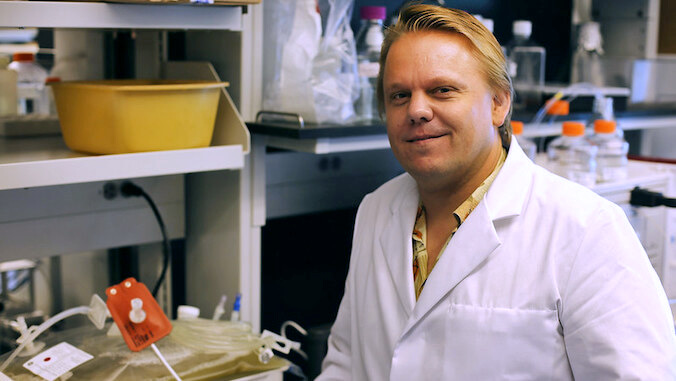
Researchers at the University of Hawaiʻi at Mānoa John A. Burns School of Medicine (JABSOM) have demonstrated the efficacy of multiple shelf-stable vaccine candidates targeting three life-threatening filoviruses: Zaire ebolavirus, Sudan ebolavirus and Marburg Marburgvirus. The new findings were published in Frontiers in Immunology on August 18.
Associate Professor Axel Lehrer of the Department of Tropical Medicine, Medical Microbiology and Pharmacology leads the JABSOM team, working in collaboration with late-stage biopharmaceutical company Soligenix, Inc.
"Filoviruses are endemic in areas of the world where the power supply can be uncertain, making a thermostable vaccine particularly valuable," said Lehrer. "Our work to date has demonstrated not only the feasibility of rapid and efficient manufacturing, but also the applicability of thermostabilization of multiple antigens with the potential for a broadly applicable and easily distributed vaccine."
Lehrer's work has focused on creating shelf-stable vaccines that require no refrigeration or freezing, which is key to eradicating viruses in tropical countries, or in times of lengthy power outages around the globe. The positive data was demonstrated in non-human primates using a single vial platform presentation.
- Related UH News story: Ebola vaccine developed by UH can withstand high heat, February 22, 2019
According to Lehrer, once developed, such a vaccine may be able to address emerging outbreaks, such as the Marburg virus infection that appeared in Guinea recently. The collaborators believe that this technology may be an important contribution to National Institute of Allergy and Infectious Diseases Director Anthony Fauci's proposed idea to develop prototype vaccines against the top 20 viral families that may also cause pandemics.
"Having such a platform available would likely enable broader and faster worldwide vaccination campaigns addressing future health emergencies. In addition, the ability to combine antigens in the formulation also enables generation of potentially broader protective vaccines," Lehrer said.
COVID-19 vaccine update
Since March 2020, Lehrer has also been working with Soligenix on a promising thermostable COVID-19 vaccine. "While much progress has been made since the initial announcement of our collaborative research, we are actively working on further analysis that can show a broad neutralizing potential of the vaccine candidate against a number of virus variants," he said.
A manuscript presenting the team's findings has been submitted for peer review to npj Vaccines with another paper currently under revision.
Support ongoing critical UH research like this focused on preventing and curing infectious and emerging diseases, including COVID-19.
This research is an example of UH Mānoa's goal of Excellence in Research: Advancing the Research and Creative Work Enterprise (PDF), one of four goals identified in the 2015-25 Strategic Plan (PDF), updated in December 2020.






